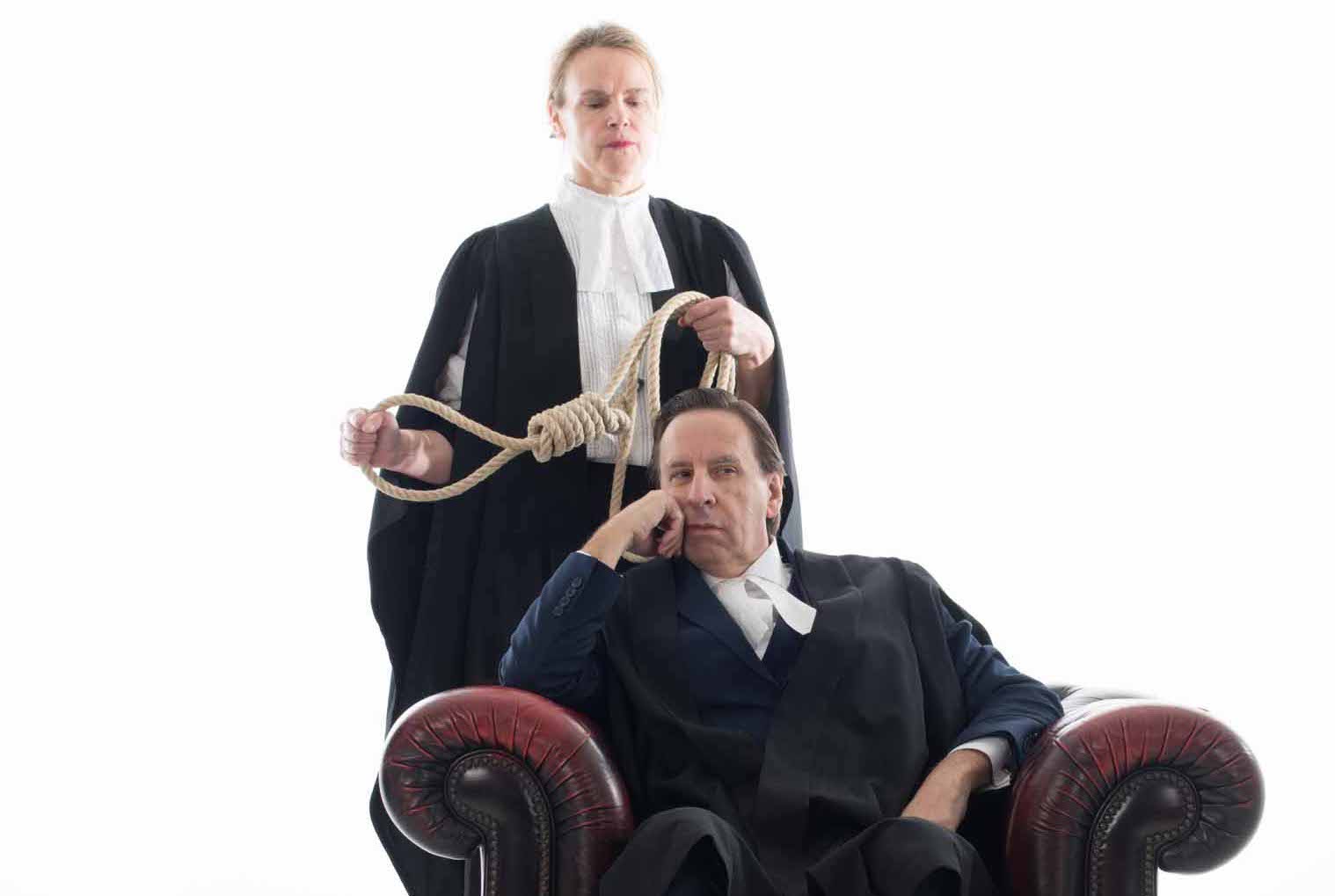Trinity Theatre Club will perform its production of Agatha Christie’s Witness for the Prosecution from Wednesday March 1 to March 4. Here the show’s director Sandra Barfield tells Eileen Leahy all about this compelling Whodunnit…
Why did you decide to do Witness for the Prosecution as a production?
That is quite a complex question really. A director probably has about five plays that they’d really like to direct and then it is down to what would fit in the theatrical season. Do you need a comedy or tragedy? Agatha Christie is a well-known author, it is a great play and I just love the plot, it’s one of my favourites!
What’s the play about?
Without giving too much away I can say that it is set mainly in a courtroom, and deals with the arrest and prosecution of one Leonard Vole, who is accused of murdering Emily French, a rich widow, on October 14, 1953.
What do you think people love most about it?
I think that both the play and the film have a naturalistic feel. You can believe in the characters – especially Leonard Vole. The courtroom setting, the witnesses – it all feels so real and of course [very much] of its time. The ending then is a shock!
Agatha Christie’s original book was also made into a film in the fifties. Can you tell us a bit about this?
The original 1957 film with Charles Laughton as Sir Wilfred Robarts and Marlene Dietrich playing Vole’s wife was nominated for five awards, but actually won nothing. I think this was partly because of the secrecy surrounding the end of the film…
What are the differences between the film and the play?
As always with a film, the dialogue is written by the screenwriters, and they can enhance the story a little. Billy Wilder, the director also helped write the screenplay for Witness. In the film for instance, they introduce a nurse (played by Charles Laughton’s wife Elsa Lancaster). The film made the stuffy Sir Wilfred a little funnier and gave some of the scenes a lighter touch. The play, however has to keep to the printed text that Agatha Christie wrote as you cannot change the words due to copyright laws.
Can you tell us about some of the characters?
There are some really lovely ones in this play! Crown Prosecuter, Myers QC is always trying to win a case over Sir Wilfred. Their rivalry is beautifully written. But Janet MacKenzie, the housekeeper and companion to the late Mrs French, Greta the secretary of Sir Wilfred and Mr Mayhew Vole’s solicitor all have such great characteristics to draw on.
What appeals to you about the play and why do you think it’s still relevant today?
This is a difficult question without giving away the plot! I can’t really say much, but what I will say is the characters each have a really strong place in the story. It is a tale of hope, love and misplaced loyalty that is definitely still relevant today!
What do you think audiences will enjoy most about the play?
It is a Murder Mystery and you will sit there thinking did Vole actually do it or was it so and so? Or could it be…? So all I’ll say is you’ll have to come and see it to find out who the murderer is! But be warned – tickets are selling very fast!
Have you made any key changes to the play’s casting?
I have made one change and that is to cast Myers as a woman. At the time it is set there were very few women at the bar. There were female barristers as early as 1919 but did they have to jump through hoops to get there!
How many actors are in the production and are they local?
There are 17 actors in the production, with some familiar faces and some new ones too. Some are former professional actors while others are home grown. They are all from around the local area, so all community based. Who’d want to travel too far to rehearsals?!
Were there any tricky elements to staging this piece?
There are always going to be tricky elements to staging any piece but in this case, it is because it is set in a courtroom. You cannot just make a character walk across the stage to another area. A courtroom is rather static and I can’t play with the camera angles, so you have to make the best you can of the setting. The emphasis is then on the quality of acting and creating the tense atmosphere needed in a murder case. Keeping the audience guessing right to the end as to whom the killer is in itself very tricky!
What do you like about directing in general?
I think it is down to a love of acting in general. You and the cast work together to make a production work. You take the story and bring it to life. What can be better than that? I liken it to reading a story to a young child and watching their face as the tale unfolds. It’s pure magic.
Do you enjoy directing comedy or drama?
Personally speaking I prefer drama but the challenge is comedy. To make people laugh is truly great!
Any final thoughts?
I just hope the audience love Witness for the Prosecution. It truly is one of the best Agatha Christie plays so a great one to see live…
Performances of Trinity Theatre Club’s Witness for the Prosecution run from March 1 to 4 at 7.30pm at Trinity Theatre and tickets cost £17.
There is a special opening night offer of two tickets for £28. Use the code TTC2023 when booking at www.trinitytheatre.net
For more information on Trinity Theatre Club visit: www.trinitytheatreclub.co.uk








